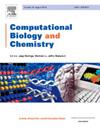Optimization and correction of breast dynamic optical imaging projection data based on deep learning
IF 2.6
4区 生物学
Q2 BIOLOGY
引用次数: 0
Abstract
Breast cancer poses a significant health threat to women, necessitating advancements in diagnostic technologies. Breast dynamic optical imaging (DOI) technology, recognized for its non-invasive and radiation-free properties, is extensively utilized for the early screening and quantitative analysis of breast tumors. The integration of deep learning, a robust technology for automatic image feature extraction, with breast DOI has the potential to enhance tumor detection and diagnosis significantly. This paper introduces a deep learning-enhanced image optimization approach to overcome challenges such as poor image quality and distorted projection data commonly encountered in existing DOI methods. The approach utilizes convolutional neural networks (CNNs) to extract features from raw images and employs generative adversarial networks (GANs) to enhance these images, thereby improving their quality and contrast. Additionally, a novel correction algorithm is developed to address projection data distortion, enabling the reconstruction and correction of this data for more accurate and reliable imaging results. Experimental findings confirm that the proposed method markedly enhances both image quality and projection data accuracy in breast DOI, offering a reliable foundation for clinical diagnosis. This study not only provides a new perspective and methodology for the early screening and diagnosis of breast cancer but also holds substantial clinical importance and prospective applications.
基于深度学习的乳腺动态光学成像投影数据优化与校正
乳腺癌对妇女的健康构成严重威胁,因此诊断技术必须不断进步。乳腺动态光学成像(DOI)技术因其无创伤、无辐射的特性,被广泛用于乳腺肿瘤的早期筛查和定量分析。深度学习是一种强大的自动图像特征提取技术,将其与乳腺动态光学成像技术相结合,有望显著提高肿瘤的检测和诊断水平。本文介绍了一种深度学习增强型图像优化方法,以克服现有 DOI 方法中常见的图像质量差和投影数据失真等难题。该方法利用卷积神经网络(CNN)从原始图像中提取特征,并利用生成对抗网络(GAN)增强这些图像,从而提高图像质量和对比度。此外,还开发了一种新颖的校正算法来解决投影数据失真问题,从而能够重建和校正这些数据,获得更准确、更可靠的成像结果。实验结果证实,所提出的方法显著提高了乳腺 DOI 的图像质量和投影数据的准确性,为临床诊断提供了可靠的依据。这项研究不仅为乳腺癌的早期筛查和诊断提供了新的视角和方法,而且具有重要的临床意义和应用前景。
本文章由计算机程序翻译,如有差异,请以英文原文为准。
求助全文
约1分钟内获得全文
求助全文
来源期刊

Computational Biology and Chemistry
生物-计算机:跨学科应用
CiteScore
6.10
自引率
3.20%
发文量
142
审稿时长
24 days
期刊介绍:
Computational Biology and Chemistry publishes original research papers and review articles in all areas of computational life sciences. High quality research contributions with a major computational component in the areas of nucleic acid and protein sequence research, molecular evolution, molecular genetics (functional genomics and proteomics), theory and practice of either biology-specific or chemical-biology-specific modeling, and structural biology of nucleic acids and proteins are particularly welcome. Exceptionally high quality research work in bioinformatics, systems biology, ecology, computational pharmacology, metabolism, biomedical engineering, epidemiology, and statistical genetics will also be considered.
Given their inherent uncertainty, protein modeling and molecular docking studies should be thoroughly validated. In the absence of experimental results for validation, the use of molecular dynamics simulations along with detailed free energy calculations, for example, should be used as complementary techniques to support the major conclusions. Submissions of premature modeling exercises without additional biological insights will not be considered.
Review articles will generally be commissioned by the editors and should not be submitted to the journal without explicit invitation. However prospective authors are welcome to send a brief (one to three pages) synopsis, which will be evaluated by the editors.
 求助内容:
求助内容: 应助结果提醒方式:
应助结果提醒方式:


